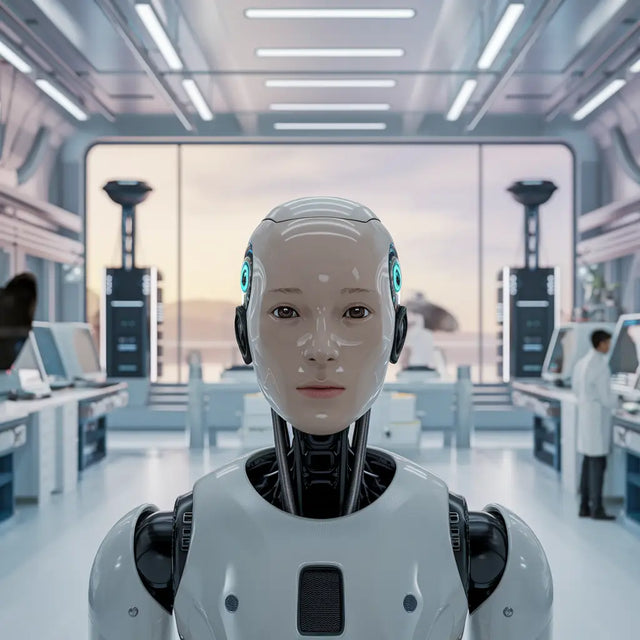Artificial Intelligence Revolution Transforming our World
The Rise of Artificial Intelligence: A New Era of Innovation
Artificial intelligence (AI) has become a powerful catalyst of change, reshaping how we live, work, and connect with the world. From self-driving cars that promise safer roads to personalized recommendations that enhance our online experiences, AI is becoming a seamless part of our everyday lives. As AI continues to evolve, it plays an increasingly crucial role across industries, transforming healthcare with predictive diagnostics, revolutionizing finance through automated trading, and optimizing supply chains in manufacturing. However, with its growing influence comes a need for thoughtful consideration of the ethical challenges it presents, such as privacy concerns, bias in algorithms, and the future of human jobs in an automated world. This article provides an in-depth look at AI’s wide-ranging applications, its transformative impact across sectors, and the ethical dimensions that must be addressed to ensure a responsible and beneficial integration into society.
Defining Artificial Intelligence: Understanding the Basics
At its core, AI refers to the ability of machines to mimic human intelligence. It encompasses a broad spectrum of technologies that enable computers to perform tasks that typically require human cognitive abilities, such as:
- Learning: Acquiring knowledge from data and experience.
- Reasoning: Applying logic and deduction to solve problems.
- Problem-solving: Developing solutions to complex challenges.
- Perception: Interpreting sensory information, such as images and sounds.
- Natural Language Processing: Understanding and generating human language.
Key Types of AI: A Categorical Overview
AI can be broadly categorized into three primary types, each with its own strengths and applications:
- Narrow AI (Weak AI): Focused on performing specific tasks, such as playing chess or recognizing faces. Most current AI applications fall into this category.
- General AI (Strong AI): Hypothetical AI with human-level cognitive abilities, capable of performing any intellectual task that a human can. This type of AI is still under development.
- Super AI: A theoretical AI that surpasses human intelligence in all aspects. It is considered a highly speculative and distant future possibility.
Applications of AI Across Industries
The transformative power of AI is being felt across various industries, revolutionizing how businesses operate and deliver value to their customers. Here are some notable examples:
Healthcare
- Diagnosis and Treatment: AI-powered algorithms can analyze medical images, detect diseases at early stages, and assist doctors in making accurate diagnoses.
- Drug Discovery: AI accelerates the process of identifying and developing new medications.
- Personalized Medicine: AI tailors treatment plans based on individual patient data and genetic profiles.
Finance
- Fraud Detection: AI algorithms can identify suspicious transactions and prevent financial crimes.
- Risk Management: AI helps assess and manage financial risks more effectively.
- Investment Strategies: AI-driven investment platforms provide personalized financial advice and automate trading decisions.
Manufacturing
- Predictive Maintenance: AI analyzes sensor data to anticipate equipment failures and optimize maintenance schedules.
- Robotics and Automation: AI-powered robots perform tasks in manufacturing environments, improving efficiency and productivity.
- Quality Control: AI-based vision systems detect defects and ensure product quality.
Retail
- Personalized Recommendations: AI analyzes customer data to provide personalized product recommendations.
- Inventory Management: AI optimizes inventory levels and predicts demand fluctuations.
- Chatbots and Virtual Assistants: AI-powered chatbots provide instant customer support and answer queries.
Transportation
- Self-driving Cars: AI algorithms enable autonomous vehicles to navigate roads and avoid accidents.
- Traffic Management: AI optimizes traffic flow and reduces congestion.
- Logistics and Delivery: AI optimizes delivery routes and schedules, improving efficiency and reducing costs.
The Impact of AI: Shaping the Future
AI's influence extends beyond individual industries, impacting society as a whole. Some key impacts include:
Economic Growth and Job Market
AI is expected to create new jobs and industries while automating certain tasks, leading to potential job displacement in some sectors. Adaptability and continuous learning will be crucial in the AI-driven economy.
Social Change
AI has the potential to address social challenges, such as improving healthcare access, promoting education, and tackling climate change. However, ethical considerations related to bias, privacy, and control are paramount.
Technological Advancement
AI is driving rapid advancements in various fields, from medicine to materials science. Its ability to analyze vast amounts of data and generate insights is accelerating innovation across multiple disciplines.
Ethical Considerations in AI Development
As AI becomes increasingly sophisticated, it is crucial to address the ethical implications of its development and deployment. Key concerns include:
- Bias and Fairness: AI systems trained on biased data can perpetuate and amplify existing inequalities.
- Privacy and Security: AI's use of personal data raises concerns about privacy breaches and data misuse.
- Job Displacement: AI's automation capabilities could lead to job losses in certain sectors, requiring governments and businesses to address workforce retraining and social safety nets.
- Autonomous Weapons: The development of autonomous weapons raises ethical questions about accountability and the potential for unintended consequences.
The Future of AI: A Journey of Discovery
AI is rapidly evolving, with new breakthroughs and applications emerging constantly. As AI continues to advance, it is essential to foster responsible development, prioritize ethical considerations, and harness its power to create a brighter future for all.





0 Comentarios
No hay comentarios todavía. Sé el primero en comentar.